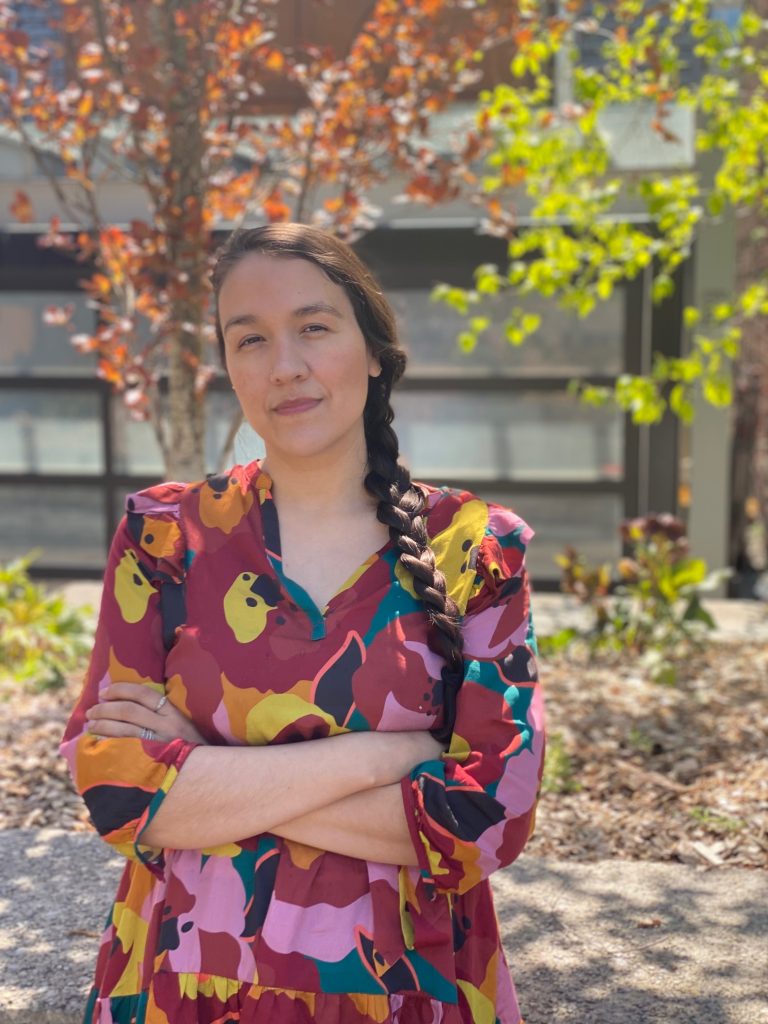New faculty spotlight: Jeanie Santaularia
A large majority of violence research relies on traditional violence surveillance systems that may suffer from selection bias and potentially over-represent the most vulnerable populations, such as people of color. As part of her work and research, Dr. Jeanie Santaularia, University of Washington (UW) Department of Epidemiology Assistant Professor, evaluates errors and biases in existing surveillance systems, looking to inform anti-racist approaches to measuring violence.

“The ways we do science need to change,” Santaularia explains. “Flipping how we do research, to work with communities and for communities, and involving folks from marginalized identities in the process and in the ownership of data.”
Dr. Jeanie Santaularia is an interdisciplinary population health researcher whose primary areas of research include violence prevention, social epidemiology, health disparities, social determinants of health, and epidemiologic methods. Prior to joining the UW Department of Epidemiology in January 2023, Dr. Santaularia was a postdoctoral scholar in population science with the Carolina Population Center at the University of North Carolina at Chapel Hill. She completed her doctoral training in epidemiology from the University of Minnesota, and received her master of public health in epidemiology from the University of Illinois, Chicago. Dr. Santaularia has also worked in various capacities with local and state governments in epidemiological surveillance and practice.
Violence can be described broadly as the intentional use of power against a person or group of people to cause injury or harm. Dr. Santaularia uses this framing in her research on the causes and consequences of violence, as well as how violence is embodied to impact health, particularly related to maternal and child health.
Dr. Santaularia worked as the Behavioral Risk Factor Surveillance System program manager and epidemiologist with the Kansas State Health Department when she initially became interested in the role, —and potential limitations of—surveillance systems in understanding population health. Her work now evaluates these systems of measurement and explores risk and protective factors in different populations, encompassing child adverse experiences and maltreatment, intimate partner violence, gun violence, and trauma.
In September, Dr. Santaularia began working on the ‘Structural factors Impacting community Violence (STRIVE): The Role of Minimum Wage, COVID-19, and Discrimination‘ project. The goal of the STRIVE project, funded by the National Center for Injury Prevention and Control, is to generate robust evidence for the impact of minimum wage increases on community violence victimization (including robberies, sexual assaults, and IPV victimization), assault injuries, and homicide deaths.
Dr. Santaularia sees her work in public health ultimately as a form of activism. Epidemiology often draws people with diverse lived experience who are interested in making the world a better place. However, Santaularia describes that, “as a Latina, academia generally wasn’t built for people like me.” She hopes to do what she can to make academic and research pathways easier for others from marginalized communities.
At the UW, she is excited about opportunities to advocate for change, share her research, and support students who are interested in exploring the importance of addressing violence as a public health problem. “It’s important to me to create a safe space for students to be who they are,” said Santaularia. “I recognize that will be earned over time, and my goal is to consistently be showing up with understanding.”
Dr. Santaularia and her family relocated to Seattle from North Carolina. She’s looking forward to exploring nature in the Pacific Northwest with her spouse, two children, dog, and two cats. Outside of her work and research, she enjoys spending time with her extended family, cooking, baking, and traveling. She loves animals. Were it not for her passion for public health, she could have seen herself as a veterinarian.